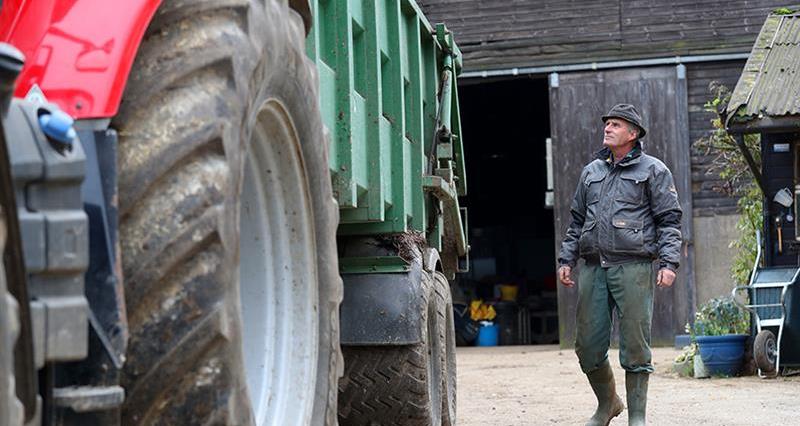
A new safety campaign launched today aims to reduce on-farm deaths and injuries by 50 percent by 2023.
The NFU and Farm Safety Partnership (FSP) have launched the year-long safety campaign on Tuesday (8 January).
The campaign focuses its attention on four themes surrounding farm fatality and injury. The themes are transport, livestock, children and falls from height.
The aim of the campaign is to highlight changes that can be made by farmers to farm work place behaviours which if implemented have the potential to significantly improve the safety record of agriculture and save lives.
The focus on transport will be launched at LAMMA today, and a new NFU Vehicle Health Check Guide has been released to help farmers maintain and use vehicles safely.
Farmer and NFU member Will Dickinson believes farmers want to stay safe, but that it shouldn’t be made difficult to do so.
“Safety is all about managing risk by removing it or controlling it. It used to be that when we were tipping grain in the shed, a yard man would manually open the back,” he said.
“This operation was risky, so we got rid of that by getting hydraulic power boards that removed the need for a manual operation. The easiest way to make yourself safe is to take away the risk.”
Will added: “The newest generations of tractors have a park facility and many of them have a safe stop mode built into this. You just slot it into park when you stop the tractor and you don’t even need to move your hand.
“Securing your tractor before leaving the cab is one easy way to stop being run over and will make a big difference to your safety and reduce the number of accidents in farming vehicles.”
'Common sense'
Will acknowledges that there is an onus on farmers to stay safe around transport. He conducts checks on his vehicle every morning.
He said: “Brakes must work, tyres need to be on wheels correctly, oil, fuel levels and brakes need to be checked along with everything that makes a vehicle work safely.
“Checking can take a bit of time but if you don’t things always seem to go wrong when you least want them to do so and can cost even more time while you are trying to fix them.
“It’s a bit like when you go to the airport: the captain of the airline going round the aeroplane. I heard of one lad on a farm who said it was a bit noisy in the cab one day so he turned up the radio but the next day the wheel fell off. Common sense should have made the lad check straight away and find out what the noise was.
“A risk assessment might take some time but it usually pays off. Common sense should tell you that the kit needed to fell a tree is going to be different to the kit needed to just tidy up a branch. Manage risks and have everything you need for the job,” Will added.
Last year, the Health and Safety Executive (HSE) announced its latest annual fatal injuries in its agriculture report 2017/2018, calling the figures "appalling".
29 fatal injuries to agricultural workers were recorded in the report and the sector continues to account for a large share of the annual fatality count (20%).
The figures don't include an additional four members of the public – two of them children – also dying.
